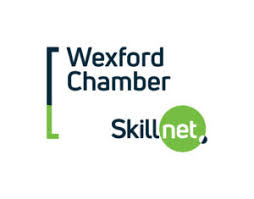Top 3 Tips for Winning Bids – The Tendering Process

By Ross Mc Carthy, Keystone Recruitment
A feature of most recessions is that retaining customers and finding new customers becomes a more competitive process. In many cases, either additional quotes are sought, formal tender processes are initiated or in the case of government contracts, natural rotation is due at what can often be the worst possible time for a particular business.
Doing what may have been successful in busier, less competitive times is a big risk. There is no guarantee that a company will retain custom, if it’s not seen to be responding to the needs of the customer. However, you should note that responding to your customer needs can mean a variety of things, and it does not necessarily mean doing more for less or cutting prices. There are three practical steps to winning bids in a recession that we will outline now that can help you and your business. They’re all applicable whether you’re an old hand, an incumbent, or brand new to this space of trying to prepare winning bids for competitive tenders.
- Find out the drivers for the decision.
Why is the company going back out to market? What are the key drivers for the decision? How did you come to be aware of the opportunity? These are important questions for a company to understand.
If you are not the incumbent, you need to take steps to evaluate whether or not you could win the tender or whether you’re likely to just be making up the numbers. Do you have any relevant case studies? Do the products you sell, or does your service team fit the bill? Does anyone on your team know the buying organisation, and does anyone on their end know of your company and your product or service offering? Those are just some of the more pertinent questions you need to have answered.
If you are an incumbent or have a history with the buying organisation, think about the record and the relationship you have with the buyer. Did you meet the KPIs, deliver on time, and manage the client relationship well? If so, you have a good basis to consider competing to win. If not, determine what would you need to change, so that you’re seen in a new light?
You should also consider the broader commercial context. Some things to consider include:
- What is happening in this sector – was it very badly hit by COVID-19?
- What is the company’s financial health?
- Who is the decision-maker going to be and do they understand what you do?
- What are their expectations / plans for the category of expenditure you are in?
If you cannot answer these strategic questions, it will be difficult to shape an offer that addresses their needs while protecting your own commercial well-being. Furthermore, you’ll be highly unlikely to win the bid in any tender process.
- Find partners where it makes sense to do so.
There are many ways to add breadth of range or experience, geographic coverage or other beneficial features without incurring any significant cost. This can strengthen a company’s offer greatly without the competition understanding how you’ve managed to gain the advantage.
Partners can be found locally, regionally, nationally and internationally depending on what makes sense for a company and their category of expenditure. For example, for a plant hire company, the price of diesel results in it operating in one of the most geographically self-restricting markets. To compensate, the plant hire company could partner locally, to increase the number of trucks it can operate, or regionally, so it can cover more territory with a partner offering contract consolidation and price harmonisation to the buyer.
More complex service-based offerings can bring in expertise from anywhere in the world to complement your offering, if you’re strategic about your approach to winning bids, despite the recession. Done correctly, you may be able to increase prices but add greater value for the customer.
Explore Sluamor for more information on how you can use our platform, to find the right partners for your public sector or private sector bids, e.g., in scenarios where you’re looking to expand your business and grow sales.
- Develop a strategic approach to bid management
Many companies lack a strategic approach to bid management, which often proves detrimental when they aim to win bids. In our view, a strategic approach to bid management comprises a combination of good account management practices, market and competitor analysis, and a rigorous approach to bid management.
Bid writing is a discipline in its own right, and stronger, more successful companies treat it as such. Companies that are serious about competing for and winning formally tendered work, that wish to compete on quality as well as price criteria, should consider investing in bid management personnel. These can be in-house or outsourced. In the short to medium term, training your own staff and obtaining mentoring on specific elements of bids, as they arise, generates the best return on investment for most businesses. If your business isn’t doing this, you are missing a trick. To give yourself the best possible chance of winning bids you need to make sure you have the skills to develop winning bids first.
Conclusion
Ultimately, it comes down to Darwinian instincts. When times change, you also have to change, if you want to not only survive but also thrive.
Do you avoid going for tenders, due to lack of knowledge in how to complete the proposals? Does procrastination set in? Keystone Procurement in collaboration with Wexford Chamber Skillnet are delivering a short workshop aimed at helping business owners/managers write winning proposals. For ore information and to book your place, please click the link below.
